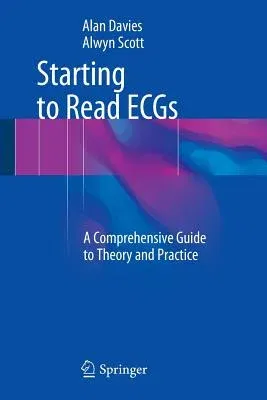The ECG is one of the most widely available diagnostic tests used in
clinical practice today. This book is intended to build upon the topics
covered in Starting to Read ECGs: The Basics thus allowing the reader to
enhance their previous knowledge. Additional topics covered include a
detailed look at calculating cardiac axis, an area often considered
difficult to grasp, and alternative methods such as the various ways the
heart rate can be calculated, the different criteria for determining
LVH. Technical details about specific cardiac conditions, how to
interpret pediatric ECGs, and the effect of medical devices on the ECG
will also be discussed. Plentiful diagrams, tables and colour images
used throughout to illustrate complex points in a simple and easy to
understand way. The key facts section at the end of each chapter
highlights the most important information and summary tables are
provided to allow the book to be used as a quick reference guide. Each
chapter will contain a mind map for revision and to aid dyslexic
learners, practice questions and a few practice ECGs to consolidate the
readers knowledge.The book tells the practitioner what they need to know
clinically and doesn't assume any prior knowledge. It is ideal for
junior doctors and clinicians, nurses, paramedics, students and health
care professionals involved in the recording of 12-lead ECGs.

